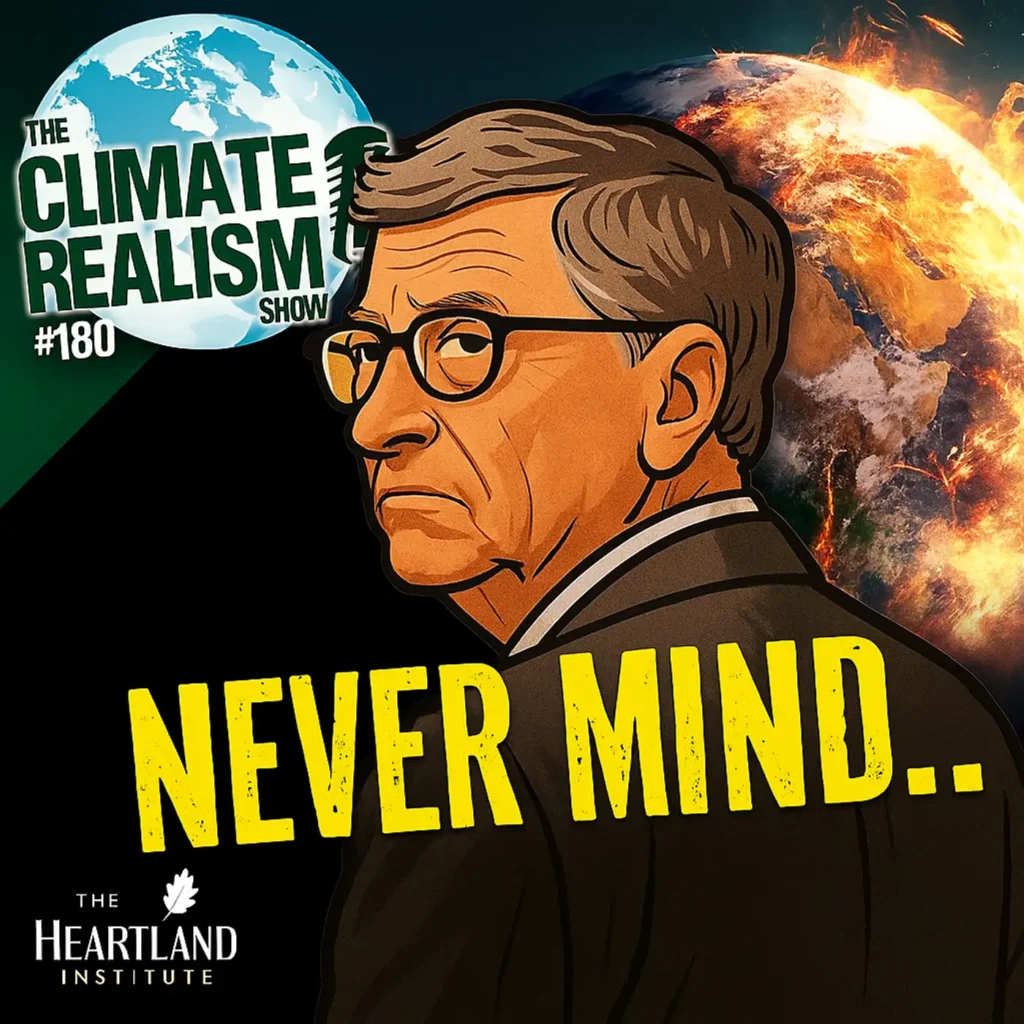We are being told of the world’s forthcoming demise with continued use of fossil fuels, and the need to commit to a reduction in emissions to keeping temperature rise below 1.5C, but we have nothing to compare potential fatalities with or without fossil fuels.
History tells us that four of the last five warming cycles occurred before humans and their kin were even around, suggesting the causes have got to be attributable to the Sun and Mother Nature.
Human beings were not present during any of those previous ice ages and warming cycles, but the SUN was here for ALL those worldly climate changes. Are we betting against the Sun? Today, President Biden has called climate change “the number one issue facing humanity”, implying that humanity is more powerful than Mother Nature and the Sun that caused the previous ice ages and warming cycles.
So, what if the earth is warming again? Two questions for the infamous “modelers”:
-
How many fatalities are projected of the 8 billion in a warmer climate with continued use of fossil fuels?
-
How many fatalities are projected of the 8 billion without the fossil fuels that were the reason the world populated from 1 to 8 billion in a period of about 200 years?
If we were to follow the Intergovernmental Panel on Climate Change (IPCC) led efforts to cease oil production, cease fracking, and stop importing crude oil, the supply chain to refineries will be terminated and that manufacturing industry will become history, i.e., no more fuels for transportation infrastructures, and no manufactured derivatives from crude oil to make the thousands of products demanded by worldwide economies and lifestyles.
Interestingly, after the discovery of oil just more than a hundred years ago, we created various modes of transportation, a medical industry, and electronics and communications systems. The oil that reduced infant mortality, extended longevity to more than 80+ and allowed the world to populate to from 1 to 8 billion in about 200 short years, is now required to provide the food, medical, and communications to maintain and grow that population.
A key question for all those attending the Intergovernmental Panel on Climate Change (IPCC) Conference in Glasgow, Scotland in November:
-
How dare pro-humanity individuals and governments support banishment of fossil fuels, when their banishment would be the greatest threat to civilization resulting in billions dying from starvation, diseases, and weather-related deaths?
With fossil fuels:
-
The prosperity in the wealthier and healthier countries of using fossil fuels has reduced infant mortality, extended longevity from 40+ to more than 80+, allowed us to move to anywhere in the world via planes, trains, ships, and vehicles.
-
We know that wealthier developed countries have access to heating, air conditioning, and insulation that has virtually eliminated weather related deaths. In the last 80 years, climate-related deaths have gone down by a rate of 98%. Globally, the individual risk of dying from weather-related disasters declined by 98 percent from a high of almost 500,000 deaths in 1920 from floods, droughts, storms, wildfires, and extreme temperatures.
-
We created various modes of transportation, a medical industry, and electronics and communications systems. The oil that reduced infant mortality, extended longevity to more than 80+ and allowed the world to populate to 8 billion, within the last 200 years is now required to provide the food, medical, and communications to maintain and grow that population.
-
The more than 6,000 products that are made from derivatives manufactured from oil, including asphalt roofing, asphalt roads, fertilizers, and all the products in hospitals that come from the derivatives manufactured from crude oil are more important than the various fuels to the world to operate planes, trucks, militaries, construction equipment, merchant ships, cruise ships, and automobiles. Those products have been successful in “limiting” annual fatalities to the following:
-
More than 25,000,000 abortions performed each year
-
More than 9,500,000 world cancer deaths per year.
-
More than 8,000,000 tobacco related deaths per year, and over 80 percent of the world’s 1.3 billion tobacco users live in low- and middle-income countries.
-
3,800,000 deaths every year because of household exposure to smoke from dirty cook stoves and fuels.
-
2,300,000 women and men around the world succumb to work-related accidents or diseases every year per.
-
4,700,000 from the coronavirus in 2020 alone.
-
1,350,000 world traffic deaths per year.
-
270,000 pedestrians killed on roads each year.
-
585,900 premature deaths caused by drugs per year.
Without fossil fuels, poorer countries are already experiencing 11 million children dying every year. Those infant fatalities are from the preventable causes of diarrhea, malaria, neonatal infection, pneumonia, preterm delivery, or lack of oxygen at birth as many developing countries have no, or minimal, access to those products from oil derivatives enjoyed by the wealthy and healthy countries.
Humanity has been adaptive to climate changes, especially with all the products from fossil fuels and the various infrastructures that they support. If we abolish fossil fuels, just to reduce emissions, what do the computer models project in annual fatalities without the medical industry infrastructure, transportation infrastructures, communication infrastructures, and heating, air conditioning, and insulation that has virtually eliminated weather related deaths, that those fossil fuel products support?
The computer models need to share with the world, the projected annual fatalities to the 8 billion on earth, once we have eliminated the supply chain of products demanded by the medical industry, transportation infrastructure, and communication infrastructures. Basically, can humanity survive in a warmer climate without fossil fuels, and what is the projected lifespan without the products from fossil fuels?
It would be great to eliminate fossil fuels and reduce the associated emissions, BUT where’s the safety net, before we jump off that cliff, to keep economies and lifestyles from the drastic changes that would be required without the products from those fossil fuels?
Without a safety net to replace all the products and fuels manufactured from crude oil, as discussed with TV talk show host Rick Amato, efforts to cease the use of oil could be the greatest threat to civilization, as “clean electricity” from intermittent breezes and sunshine cannot manufacture anything, as they just generate electricity.
[FIRST PUBLISHED AT: CFACT].
PHOTO: no more fossil fuel. PHOTO BY: pedrik, Attribution 2.0 Generic (CC BY 2.0).





